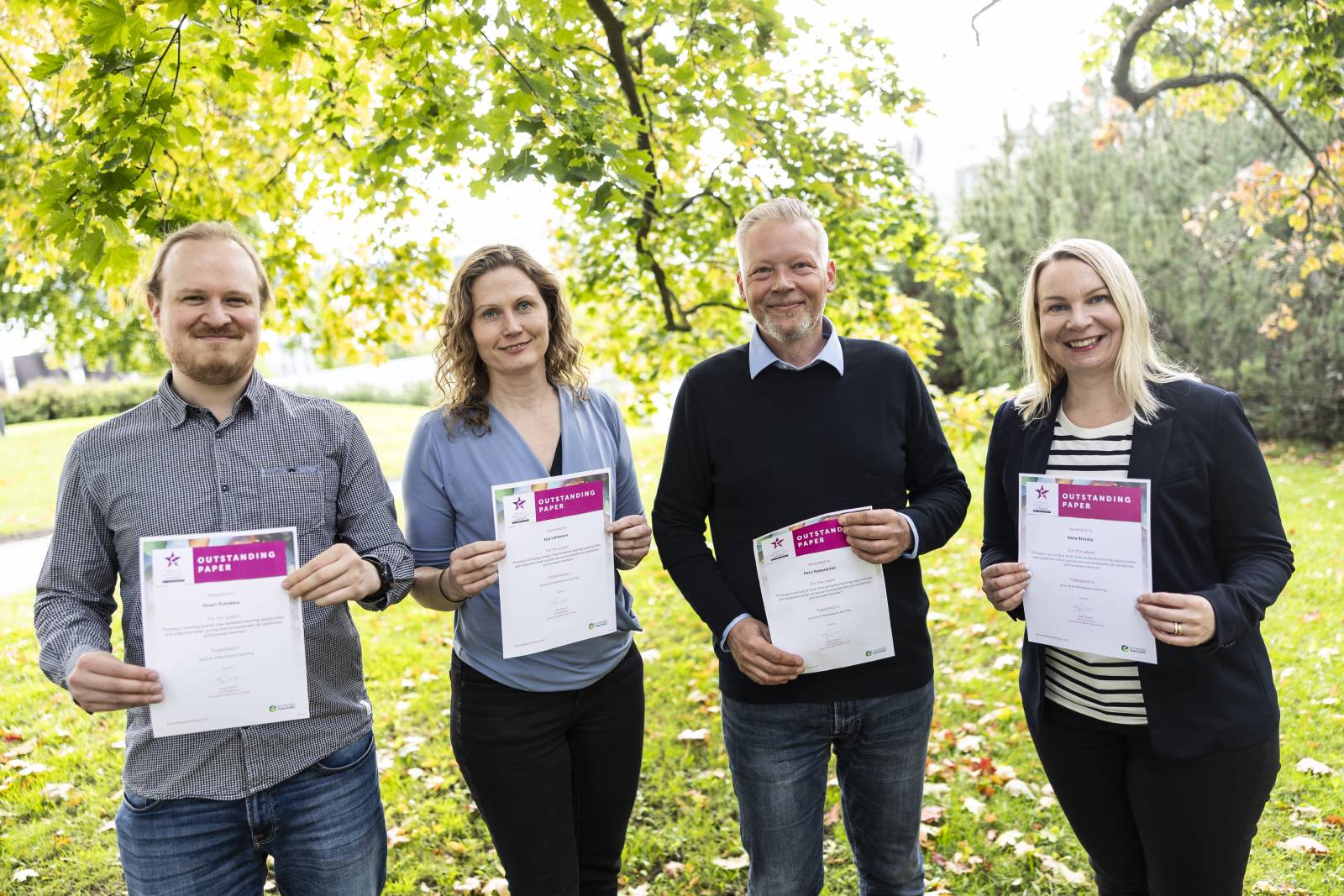The article explored the connections between workplace learning opportunities, subjective career success, job satisfaction and turnover intention. One of the findings was that career satisfaction is related not only to the experience of having a job that satisfies one’s personal needs and preferences, but also to the feeling of being able to manage one’s career and to actively make career decisions.
It is important what employees value and appreciate in their careers. An open dialogue between employer and employee provides insight into the factors behind the subjective experience of career success. What are the values, attitudes and aspirations associated with the career? Where does the employee want to develop? Employees take a great deal of responsibility for what they learn and how, and tailor their career path according to their own criteria. Ideally, organisations could build on these discussions to offer opportunities for professional growth and individual career choices within the company, without having to search for them elsewhere.
The Outstanding Paper Awards have been the backbone of the Emerald Literati Awards for Excellence. The winners are chosen by a journal editorial team. The award is about being one of the most impressive pieces of work from the previous year.
Award winning criteria:
- Research creates impact and generates real change beyond academia
- Contribution of something new to the body of knowledge either in terms of approach or subject matter
- Excellent structure and presentation
- Well-written
- Rigour in terms of argument or analysis
- Relevance – to practice and further research, in most cases
- Up-to-date – demonstrating that the latest/key works in the field have been cited
- Ultimately, an outstanding paper should have the ‘x-factor’ – something that makes it stand out from the rest.
Article is open access.

